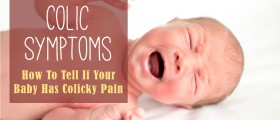
The study appeared in the journal Translational Psychiatry and was led by Dr Helen Gunter from the University of Konstanz. She said that babies who were exposed to high levels of maternal stress in the womb experienced physical changes in the way their body reacts to stress, involving a crucial "stress gene" called glucocorticoid receptor. The gene, according to the study which tracked the children from ages 9 to 19 was less active in babies exposed to stress in utero. Dr Gunter elaborates: "It changes the way that people respond to stress and they may have a reduced ability to respond to stress. Past studies have shown that children who have abused parents are more prone to depression later in life."
She went on to point out that the study was not about the stresses of every day life, which every human being experiences: "We did not look at the everyday stresses of working or having a family. This study is very specific to abuse." This study is a very small one, but a long-term research project that looked into these situations in depth as well. This study does not show that mothers are guilty for being under stress, especially in abusive relationships this is something we have to mention. It does provide some interesting insights into the development of the human body and brain inside the uterus, and it shows that what happens in pregnancy affects people for life and we're not just talking about prenatal care and eating habits! You may like to read our previous article about the side effects of antidepression medication in pregnancy as well.

















Your thoughts on this
Loading...